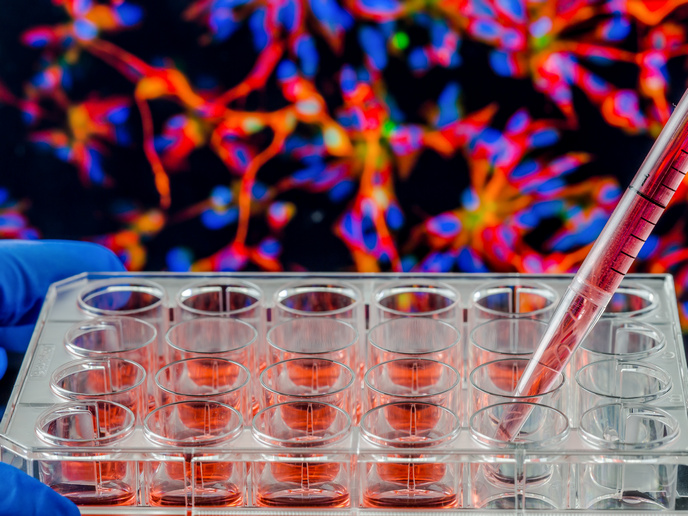Stem cell therapy for rheumatoid arthritis
RA is an inflammatory condition that affects 1 % of the general population worldwide. Current management measures involve the use of synthetic or biological disease-modifying anti-rheumatic drugs. Preclinical work performed by the consortium demonstrated the potential of using allogeneic mesenchymal expanded adult stem cells from adipose tissue (eASCs) as a treatment for RA. The EU-funded REGENER-AR(opens in new window) (Bringing regenerative medicine into the market: Allogeneic eASCs phase IB/IIA clinical trial for treating rheumatoid arthritis) project translated this work to the clinic by conducting a multicentre clinical trial. MSCs are multipotent stem cells found in most tissues such as bone marrow and fat. The consortium investigated the mechanism of eASC action in RA. Results confirmed that certain functions of eASCs can be protective against RA. Studies to determine how these allogeneic cells behave once administered were performed in a mouse model of RA. Scientists have also investigated the in vivo biodistribution and efficacy of these cells, alongside alternative routes of administration (i.e. the intralymphatic route). Through such preclinical studies, researchers now have a better understanding of eASC mechanism of action, biodistribution and toxicology. In the successfully completed phase Ib/IIa clinical trial, 53 refractory RA patients were treated with different doses of eASCs and monitored for 6 months. The results of this first-in-man treatment of RA with eASCs showed the safety of the treatment and gave a first positive indication of the potential efficacy of this approach. For clinical application, the eASC manufacturing process needs to be scaled up. For this purpose, partners made significant progress in optimising eASC cryoformulations as well as identifying steps in the manufacturing process that can be automated. REGENER-AR demonstrated the safety and potential efficacy of eASC therapy on RA patients. One project partner is now working on setting up a phase II trial in early RA patients who are refractory to methotrexate. This should pave the way for further clinical development of this innovative treatment. Given the immunomodulatory properties of eASCs, this stem cell therapy could also find application in other immune-related disorders.







